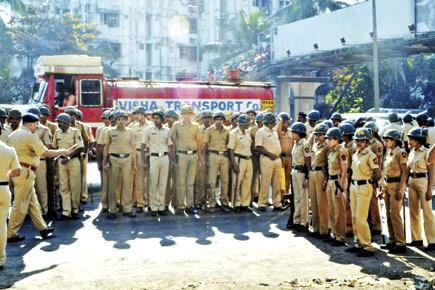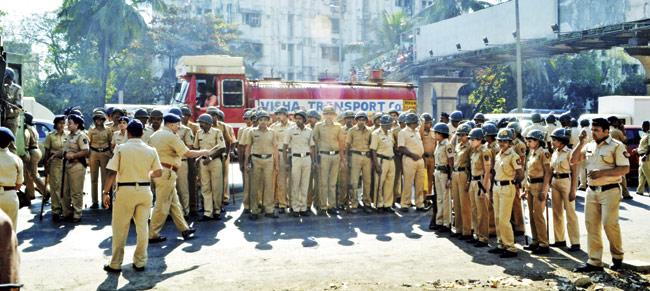Five IPS officers in Maharashtra resigned from their posts to join political parties

Five IPS officers in Maharashtra resigned from their posts to join political parties. It has been reported that another three senior cops wanted to quit but changed their plans after lodging a strong protest against the government’s posting and transfer policy.
ADVERTISEMENT

The executive has become the sole executioner of so-called reform, without any room for criticism or public debate
With the state going to polls this year and the general elections upon us, we should not be surprised if more cops follow suit in the coming few days and months.
These developments are neither surprising nor shocking for why should the police continue to be in the force when the political executive firmly entrenches its hold over them completely through the Maharashtra Police (Amendment) Ordinance, 2014 that came into force on the February 1, 2014.
Cunningly crafted by a cabinet sub-committee and promulgated by an executive fiat, the ordinance hoodwinks the people and even the Maharashtra police. The ordinance is supposed to comply with the 2006 Supreme Court directives on police reforms.
But it does the opposite — it further entrenches political control over the police, takes out the ‘independence’ of independent bodies, and the net effect of all this is that the police is more at the mercy of the political class rather than being more accountable to the law or to the people.
A cursory look at the ordinance reveals how the political executive has firmly entrenched its hold over the police. For example, the DGP has been given a minimum tenure of two years subject to superannuation when the court had directed that the DGP’s tenure must be irrespective of superannuation. There is no shortlisting process for the appointment of the police chief.
To immunise the process of selection from potential undue influence, the Supreme Court had specifically stated that the chief of police must be selected from a panel of three candidates chosen by the Union Public Service Commission. The ordinance allows the chief to be appointed on the sole discretion of the state government. In short, the ordinance omits the checks and balances that the court had ordered in selecting and retaining the police chief.
The ordinance then goes ahead and dilutes the State Security Commission — a bipartisan body meant to act as a buffer between the police and the executive and prevent the unnecessary interference in everyday policing, which is all too evident today. One of the biggest blocks in compliance of the court’s directives is the unchecked power the state government has given itself to order mid-term transfers.
In the court’s scheme, decisions on transfers are to be brought back largely into the hands of the police, and at arms-length from the politicians, through the Police Establishment Boards, which have no say when it comes to mid-term transfers as per the ordinance. It is all with the state government for ranks of and above sub-inspector.
Only last year, DGP Sanjeev Dayal and the home minister were at loggerheads over the issue of transfers and postings as the state government virtually took over the police chief’s powers to transfer and promote junior ranks.
The issue had reached a state wherein the home minister had to finally restore the DGP’s powers over assistant police inspectors, police inspectors and senior police inspectors. In a stealth move, the ordinance undoes some of that restoration by extending the home minister’s remit to order any mid-term transfers to inspectors and sub-inspectors.
With these draconian provisions, it would not be wrong to state, therefore, that Maharashtra Police now is a police for the politicians by the politicians. It must be noted that since the court’s order in 2006, Maharashtra has dithered on reform and not complied in letter and spirit with the directives. The state was criticised by the Supreme Court-appointed monitoring committee in 2010 for non-compliance.
And now, by unjustifiably taking the ordinance route, where there is no room for detailed discussion and public consultation, the political executive has become the sole executioner of so-called reform sans any room for criticism or debate. The aam janta as well as the police remain mere spectators.
In lieu of the dangerous provisions in the ordinance, and given the trend of senior officers quitting the department after years of service, it becomes pertinent that the ordinance lapses and the state government initiates a wide process of consultation to draft a new Maharashtra Police Act where the people of the state, including the police, get to have a say in their police laws by inviting comments and feedback. Unless this is done the state police will continue to remain a creature in the hands of the politicians.
Devika Prasad & Aditi Datta (Coordinator and Senior Programme Officer, Commonwealth Human Rights Initiative)
 Subscribe today by clicking the link and stay updated with the latest news!" Click here!
Subscribe today by clicking the link and stay updated with the latest news!" Click here!






